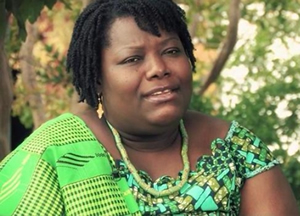
Nana Oye Lithur – Minister for Gender & Social Protection
Nana Oye Lithur, Minister of Gender, Children and Social Protection, has noted that the overarching goal of the National Gender Policy (NGP) is to mainstream gender equality concerns into the national development processes.
The NGP focuses on mainstreaming gender equality, women empowerment and social protection concerns by strongly concentrating on the implementation of the following five policy commitments.
The components are: Women Empowerment and Livelihood; Women’s Rights and Access to Justice; Women’s Leadership and Accountable Governance; Macroeconomics, Trade and Industries; and Gender Roles and Relations.
Nana Oye Lithur told the Ghana News Agency in an interview from New York on the sidelines of the Global Meeting on Gender, that the NGP also seeks to improve the social, legal, civic, political, economic and socio-cultural conditions of the people of Ghana.
The mechanism seeks to ensure that Ghana achieves gender equality for attainment of human rights, which serves as a pre-requisite for sustainable national development.
“Ghana’s goals towards achieving gender equality targets are guided by its commitment to International Instruments, its Constitution and national development frameworks,” Nana Oye Lithur stated.
Nana Oye Lithur is among Ghanaian delegation attending the “Global Leaders’ Meeting on Gender Equality and Women’s Empowerment: A Commitment to Action,” at the United Nations headquarters, New York.
The meeting is to seek for the world leaders’ personal commitment to ending discrimination against women by 2030, and announce concrete and measurable actions to kick-start rapid change in their countries.
Nana Oye Lithur used the occasion to explain that article 17(1) and (2) in Ghana’s 1992 Constitution guarantees gender equality and freedom of women and men, girls and boys from discrimination on the basis of social or economic status among others.
The Gender Minister said Ghana’s efforts for gender equity are evident in the nation’s recent achievements as shown by international indices.
She noted, however, that issues of concern identified include: Inequality in access to social protection by the marginalized, vulnerable and the poor.
Inequalities in the burden of extreme poverty, education, skilled training gaps and excess maternal mortality; and Unequal access to socio-conomic power and justice, including lack of respect for and inadequate protection and promotion of human rights of women.
Inequalities between women and men in sharing of power and decision making at all levels as well as dealing with all kinds of conflicts and insecurities and threats on women.
Mr Ban Ki-moon, UN Secretary-General reminded world leaders that: “As Heads of State and Government, you have the power and the responsibility to ensure that gender equality is-and remains-a national priority”.
He outlined three areas for action: saying, “First, I urge you to create and energetically implement coherent gender equality policies.
“Second, provide significant financing for gender equality so that commitments become reality.
“And third, monitor progress so that all governments will hold themselves and each other accountable for the pledges made here today.”
Over 80 world leaders are converged at the United Nations to personally commit to ending discrimination against women by 2030, and announce concrete and measurable actions to kick-start rapid change in their countries.
The event marks a historic first, with pledges delivered by Heads of State and Government to adopt Agenda 2030 and its Sustainable Development Goals.
The People’s Republic of China, host of the 1995 Fourth World Conference on Women, and UN Women are co-hosting the “Global Leaders’ Meeting on Gender Equality and Women’s Empowerment: A Commitment to Action.”
Besides government representatives, participants include champions of gender equality from civil society, the business world and multilateral organizations.
Source: GNA























